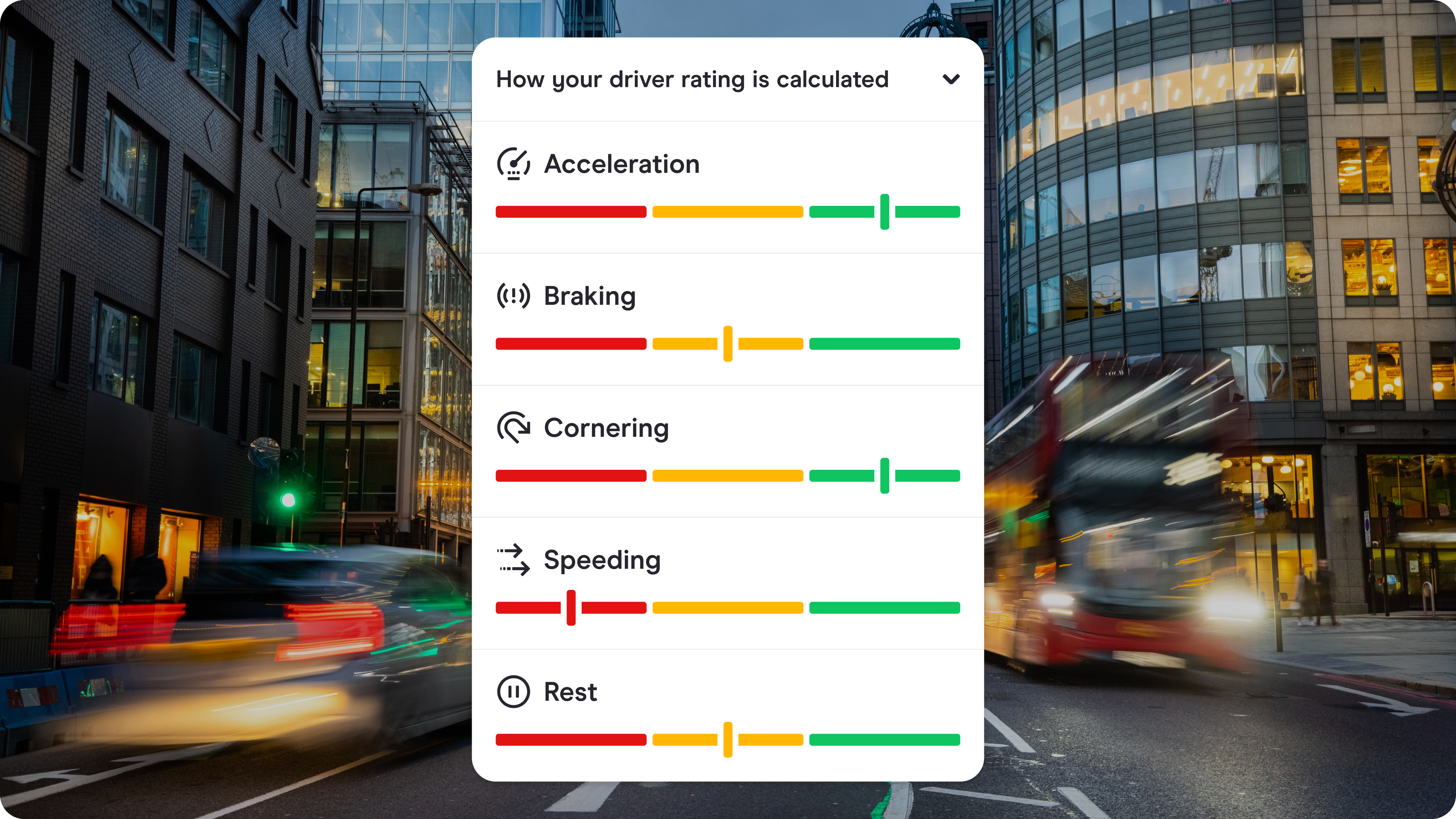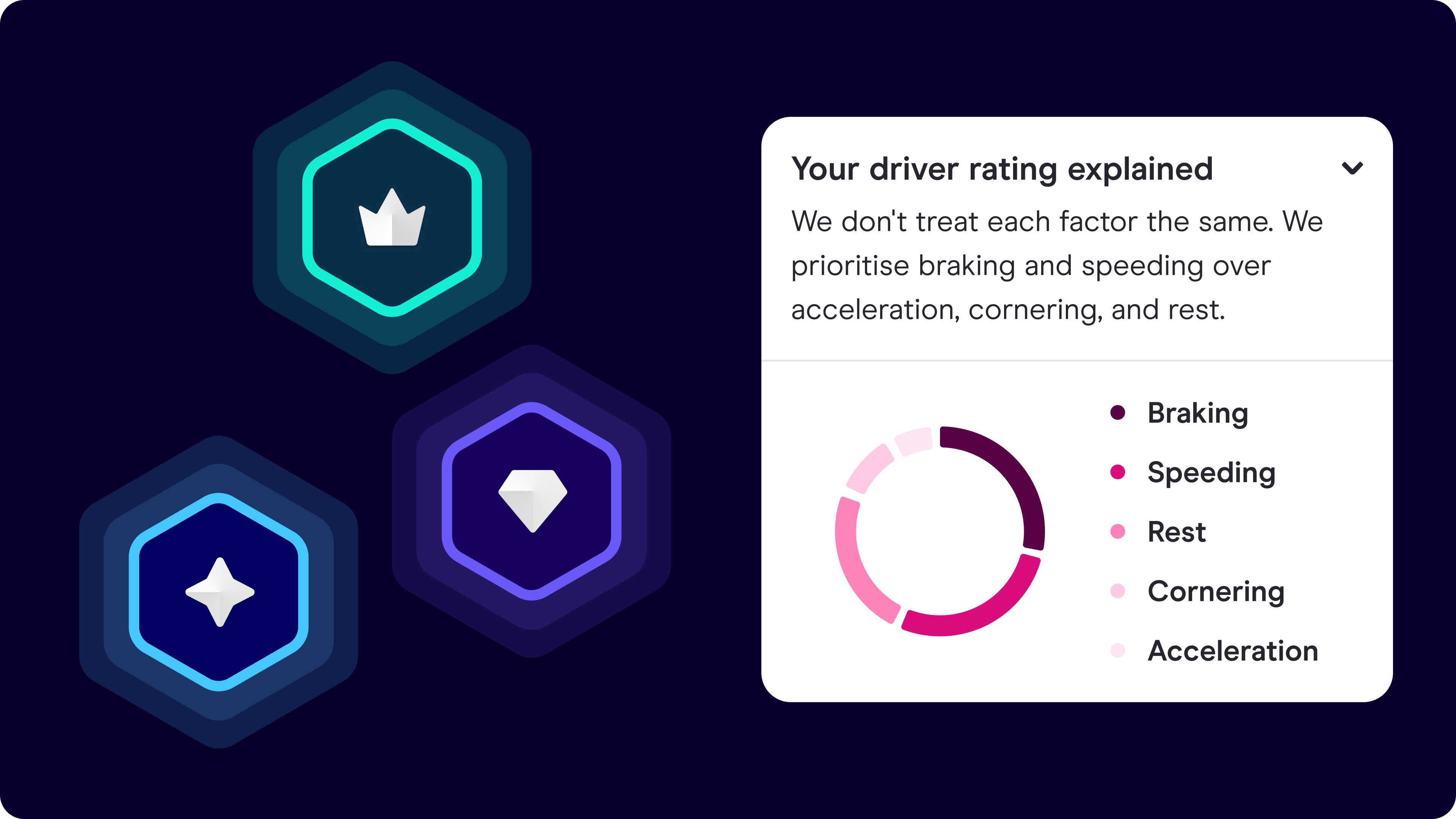
At Zego, we’re always looking for ways to help you stay safe on the road and get the lowest possible price on your insurance. That’s why we’re introducing a new factor to your Sense driver rating: Speeding.
Your Sense driver rating reflects how safely you drive over time, giving you insights into key areas we measure already: Acceleration, Braking, and Cornering. With Speeding added as a new factor, you’ll have even more insights into your driving behaviour. This way, you will be able to drive more safely, improve your driver rating further, and potentially lower your insurance price when you renew with us.
So, let’s dive into why we’ve added Speeding and what you can do to keep your Sense driver rating (and your savings) high.
Why does 'Speeding' matter?
Speeding is one of the most common causes of accidents on the road. Not only does it put you and others in danger, it also increases the wear and tear on your vehicle and means you use more fuel. All things that can add up to higher costs for you!
By monitoring and rating your driving against the speed limits on the roads, you’ll now get a complete picture of how all your driving behaviours contribute to your driving safety and efficiency. By factoring Speeding into your Sense driver rating, we hope to help you become a more responsible driver, stay safer on the roads, and save money too.
How is your new Sense driver rating calculated?
Your Sense driver rating will now be a combination of four key factors:
- Acceleration: How smoothly you pick up speed. Harsh or aggressive acceleration can reduce your driver rating and make driving less safe.
- Braking: How gently you slow down and stop. Sudden braking often indicates a lack of planning ahead or poor reactions to unexpected hazards, which could reduce your driver rating.
- Cornering: How carefully you take turns. Sharp or fast cornering could lead to skidding or loss of control, which will be reflected in your driver rating.
- Speeding: How well you stay within the speed limits. Maintaining safe speeds, especially in zones with lower limits, is key to keeping a high driver rating and ensuring road safety.
- Rest (driving breaks): How often you take breaks during long hours behind the wheel.
Each of these factors works together to give you an overall Sense driver rating, helping you understand whether you’re driving well and where there’s room for improvement. The higher your driver rating, the greater your opportunity to lower your insurance price when you renew your policy.

Tips to keep your speed in check
To help you get a head start on keeping your speeding under control and maintaining a strong Sense driver rating, here are some easy-to-follow tips:
1. Stay aware of speed limits
Speed limits can change frequently, especially in urban areas. Keep an eye on road signs and adjust your speed accordingly. This is especially important in school zones, construction areas, or places with variable speed limits.
2. Use cruise control on long journeys
On longer trips, using cruise control can help you maintain a steady speed, especially on highways. This feature helps you to stay within the speed limit and save fuel.
3. Give yourself plenty of time
One of the most common reasons drivers speed is because they’re running late. By planning ahead and allowing extra time for your journey, you can avoid the temptation to push your speed past the limit.
4. Adjust for weather conditions
Even if the speed limit is high, road conditions may not be ideal for fast driving. In bad weather like rain, snow, or fog, it’s safer to drive below the speed limit. This helps you stay in control and avoid accidents.
5. Avoid rushing through traffic lights
Speeding up to beat a red light is a risky behaviour that could affect both your safety and your Sense driver rating. It’s better to slow down and approach with caution, rather than rush through and risk a collision.
6. Stay focused on the road
Distractions like phones, food, or conversations can make it easy to miss a speed limit sign. Stay focused on the road and keep an eye on your speedometer to avoid any unnecessary speeding.
What’s next?
We’ll be rolling out the update over the upcoming days and once it’s live, you’ll be able to see how Speeding influences your Sense driver rating in the app.
Your driver rating still reflects an average of your recent trips, so one or two speeding incidents won’t impact your driver rating. It’s all about how well you drive over time!